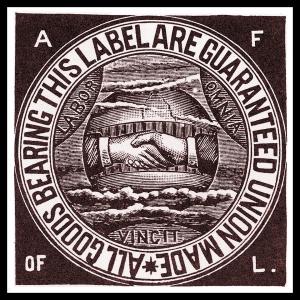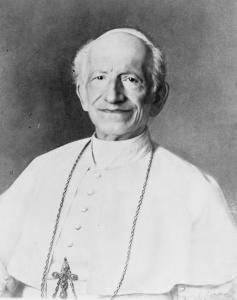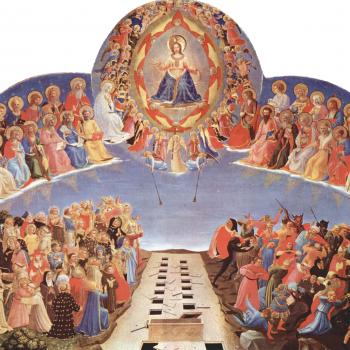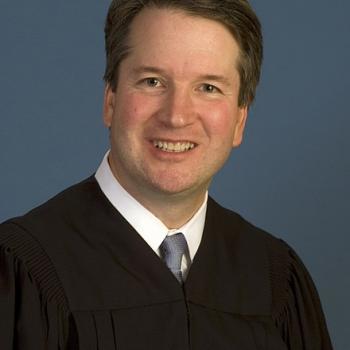In a recent post, The U.S. Is Not a Catholic Country [1], your humble servant endeavored to show how American constitutional principles yield different judicial results than would an application of Catholic social teaching. The case I used to illustrate the point was the recent one of Janus v. State, County, and Municipal Employees [2], wherein the Supreme Court held that requiring someone who is, by his own choice, not a member of the union, but represented by the union in collective bargaining, to pay the union an “agency fee” to cover collective bargaining costs, is a violation of the First Amendment.
There was some criticism raised on the way I addressed the issue. While it is evident that there are going to be conflicts between Catholic teaching and American law, which was the larger point I was trying to make, there was an objection raised that I didn’t adequately explain why the Janus case was a good example of such a conflict, that I simply assumed that Catholic social teaching would decide the case the other way. Upon reflection, I think that is a valid criticism, and I will attempt to remedy the deficiency here.
 I will begin by pointing out what I did in the previous article, that Catholic teaching considers unions to be a positive good. I will consider it needless to repeat what was said in that article in support of that reality. Indeed, Rerum Novarum [3], the encyclical that Pope Pius XI said had “proved itself the Magna Charta upon which all Christian activity in the social field ought to be based, as on a foundation,” (Quadragesimo anno, §39) [4], established the desirability of labor unions from the standpoint of Catholic social teaching.
I will begin by pointing out what I did in the previous article, that Catholic teaching considers unions to be a positive good. I will consider it needless to repeat what was said in that article in support of that reality. Indeed, Rerum Novarum [3], the encyclical that Pope Pius XI said had “proved itself the Magna Charta upon which all Christian activity in the social field ought to be based, as on a foundation,” (Quadragesimo anno, §39) [4], established the desirability of labor unions from the standpoint of Catholic social teaching.
Of course, this doesn’t mean that everything a union does is to be extolled. For example, as Pope Saint John Paul II wrote in Laborum exercens, “the role of unions is not to ‘play politics’ in the sense that the expression is commonly understood today. Unions do not have the character of political parties struggling for power; they should not be subjected to the decision of political parties or have too close links with them. In fact, in such a situation they easily lose contact with their specific role, which is to secure the just rights of workers within the framework of the common good of the whole of society; instead they become an instrument used for other purposes. (Ibid, §20) [5] But when unions do behave in this manner, the answer is to get them to stop doing it, not to weaken them so as to render them less effective for their proper purpose. That is to weaken something that Catholic social teaching tells us is a positive good for society.
But the Janus case has definitely weakened the public employee unions to which it applies. It reduces their funding, possibly substantially, and it allows employees to reap the benefits of collective bargaining without helping to cover the costs of that effort. If this kind of activity becomes widespread, employees who do contribute might eventually find that the burden placed on them is too great, since now they will have to make up for lost revenue, with the result that they might feel compelled to decertify the union.
 Now it is true that ever since the Church addressed this issue, the teaching has been that union membership should be voluntary. In Rerum Novarum, Pope Leo XIII objected to those unions that would “do their utmost to get within their grasp the whole field of labor, and force working men either to join them or to starve.” (Ibid, §54) But this applies to efforts to keep people from working at all unless they join a union. It doesn’t authorize individuals to disrupt contracts entered into between employers and unions requiring union membership.
Now it is true that ever since the Church addressed this issue, the teaching has been that union membership should be voluntary. In Rerum Novarum, Pope Leo XIII objected to those unions that would “do their utmost to get within their grasp the whole field of labor, and force working men either to join them or to starve.” (Ibid, §54) But this applies to efforts to keep people from working at all unless they join a union. It doesn’t authorize individuals to disrupt contracts entered into between employers and unions requiring union membership.
Still, assuming for the sake of argument that Catholic teaching did maintain that individuals hired by a business or agency where the employees were represented by a union had a right to abstain from membership, that would have no application to Janus, where the plaintiff was not a union member, and there was no attempt to compel him to join. He was not required to pay dues to the union, but only a fee to cover his share of the cost of the collective bargaining from which he benefited. None of his money was to be applied to outside political activity to which he might have objected.
It thus appears that while Janus may well have been well founded in the First Amendment, though that can be, and is, disputed, its result may well do injury to something that Catholic social teaching tells us is a beneficial social force. For that reason, it presents itself as an exemplar of how the U.S. Constitution and Catholic social teaching may conflict.
The icon of St. Joseph the Worker is by Daniel Nichols.
Listen to Christian Democracy on live internet radio on Tuesdays at 10:30 p.m. Eastern time at WCAT Radio here, or listen to the podcast here on the Christian Democracy Patheos blog.
Please go like Christian Democracy on Facebook here. Join the discussion on Catholic social teaching here.












